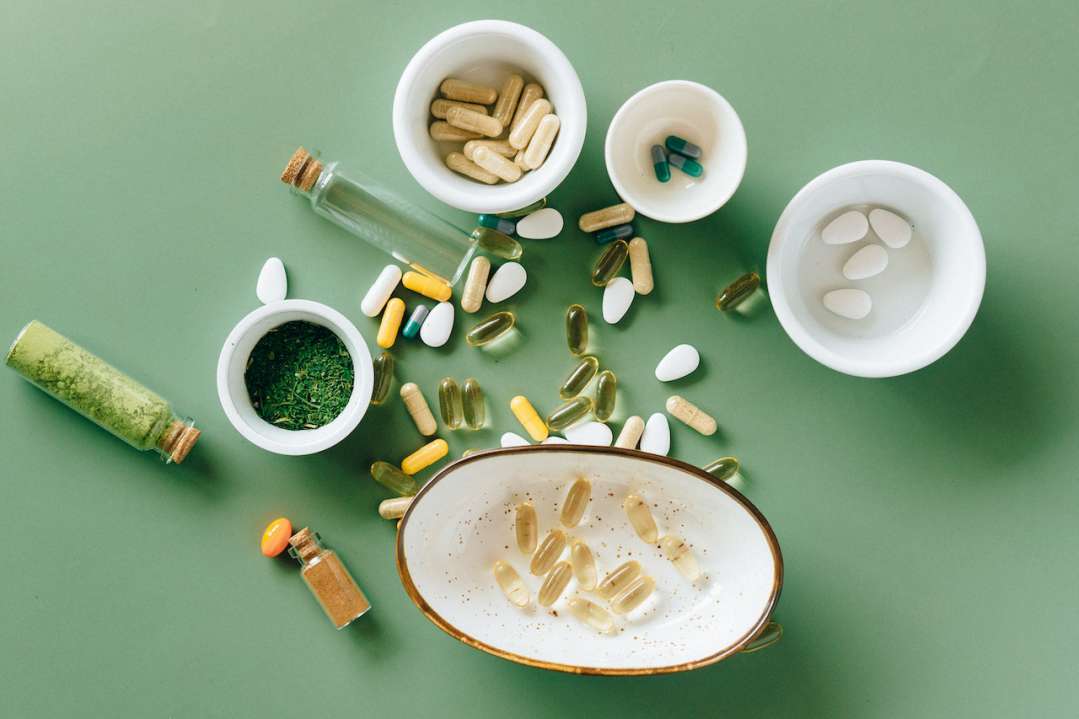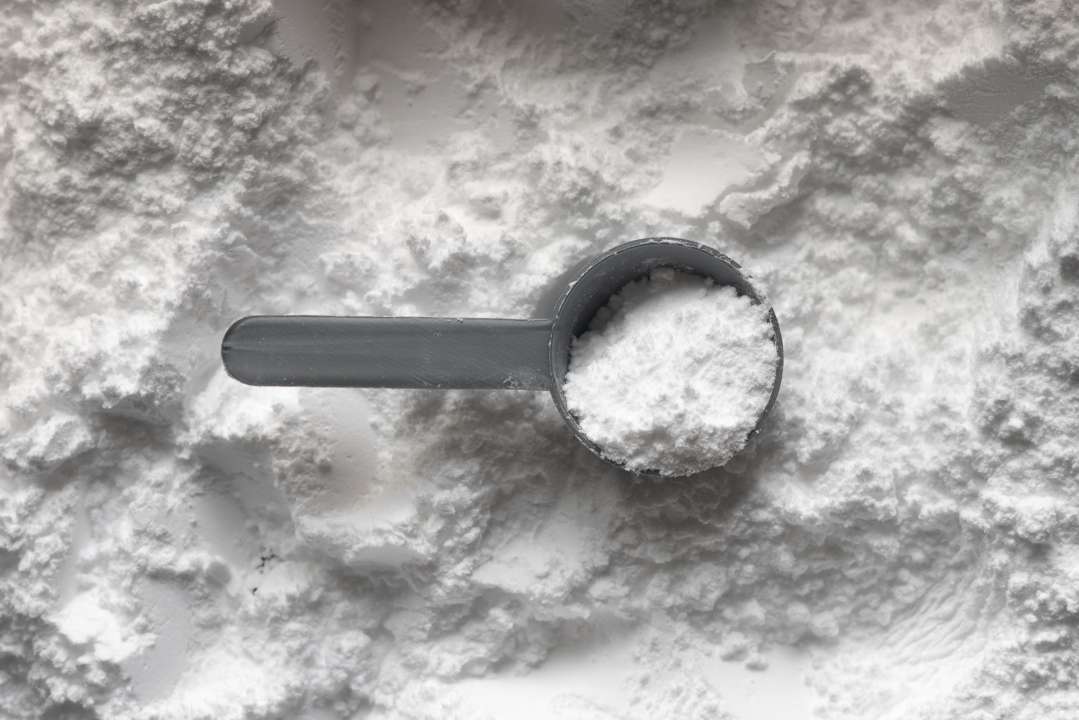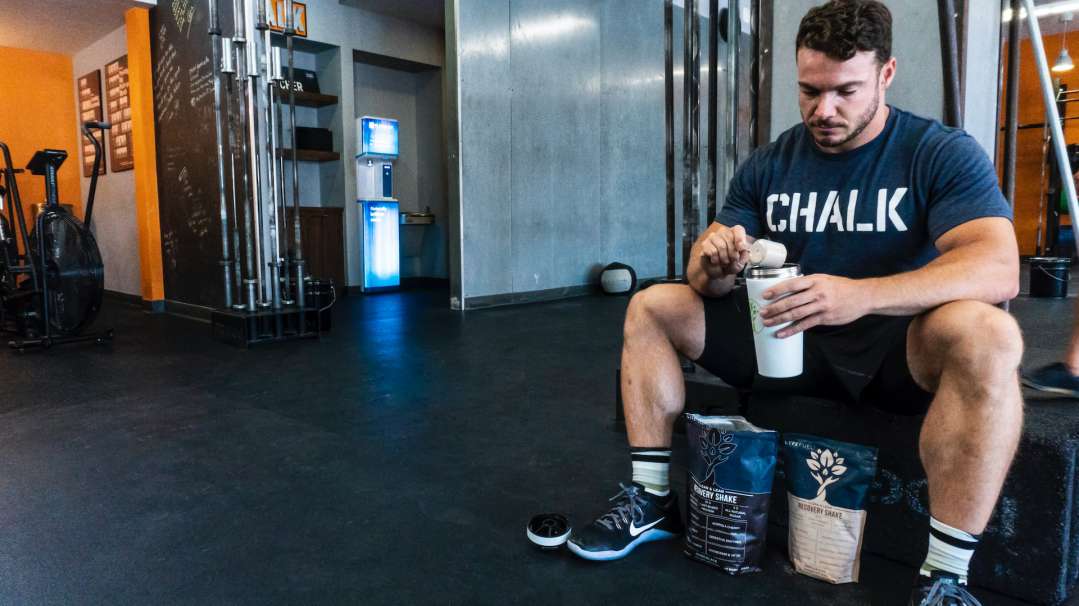The top 5 most effective muscle-building supplements
Have you ever wondered how some people manage to build muscle and get that chiselled physique? While it's true that hard work in the gym and a well-balanced diet are key components, there's another piece of the puzzle: the right supplements.

Source: Pexels
Have you ever wondered how some people manage to build muscle and get that chiseled physique? While it's true that hard work in the gym and a well-balanced diet are key components, there's another piece of the puzzle: the right supplements.
Imagine your body as a high-performance engine. You can't expect it to perform at its best if you're only giving it low-grade fuel, right? That's where the right muscle-building supplements come into play, providing the premium fuel your body needs to maximize gains and achieve your fitness goals.
In this article, we're going to dive into the top 5 most effective muscle-building supplements that can give you the edge you're looking for. You might be thinking, "Do supplements really make a difference?" The answer is a resounding yes!
When used correctly and consistently, these supplements can help you break through plateaus, enhance recovery, and ultimately increase muscle mass. So, buckle up as we embark on this journey to discover the perfect recipe for unlocking your body's full potential.
We'll explore each supplement in detail, looking at how they work, the benefits they offer, and their recommended dosage. And don't worry, we're not just spewing bro-science here. We'll back up our claims with solid scientific research, so you can feel confident in your choices.
Top 5 muscle-building supplements

Source: Unsplash
1. Creatine Monohydrate
Alright, let's dive into the magical world of creatine monohydrate, the muscle-building superstar! Trust me, once you learn more about this powerhouse, you'll probably want to sing its praises from the rooftops (or at least tell your gym buddies about it).
So, what's the deal with creatine? Picture it as your body's own personal energy booster that kicks in when you're pumping iron, making you feel like a superhero in the gym. Creatine is a natural compound found in scrumptious foods like juicy steaks and fresh fish. It's also produced by our amazing bodies, mostly chilling in our muscles, ready to spring into action when needed.
When you're hitting the gym, creatine is like your own personal cheerleader, helping your muscles produce energy and motivating you to crush those workouts. And who doesn't want more energy to lift heavier weights and push through those extra reps? It's a no-brainer!
By supplementing with creatine monohydrate, you're essentially turbocharging your muscles' energy stores, giving you the stamina to tackle even the most grueling workouts and recover like a champ. It's like having a secret weapon in your muscle-building arsenal!
Now, let's talk about the nitty-gritty: how much creatine should you be taking? Think of it as a two-step dance. First, you've got the "loading phase," where you'll consume around 20 grams of creatine per day for about 5-7 days, broken down into four equal doses. This quickstep will fill your muscles to the brim with creatine goodness. Next comes the "maintenance phase," a graceful waltz where you'll take 3-5 grams of creatine daily to keep those muscle stores topped up and ready to go.
You might be asking yourself, "Are there any downsides to this magical muscle elixir?" While some folks report minor side effects like bloating or tummy troubles, these issues can often be kept in check by staying hydrated and spreading out your creatine intake throughout the day.
2. Branched-Chain Amino Acids (BCAAs)
Ever felt like your muscles are crying out for some relief after an intense workout? Well, BCAAs might just be the heroes your muscles need! Branched-Chain Amino Acids, or BCAAs for short, play a critical role in muscle recovery and growth. These building blocks of protein are like the repair crew that swoops in after a hurricane to help rebuild the town (your muscles) faster and stronger.
So, what exactly are these BCAAs? They consist of three essential amino acids: leucine, isoleucine, and valine. These three musketeers work together to stimulate muscle protein synthesis, reduce muscle soreness, and decrease muscle fatigue during exercise. How cool is that?
Now, you might be wondering, "Where can I get these BCAAs?" Good news! BCAAs can be found in protein-rich foods like chicken, beef, and fish. But for those of us looking for a more concentrated dose or a quick pick-me-up after a workout, BCAA supplements are the way to go. They come in powders, capsules, and even ready-to-drink formulas. Just mix, pop, or sip, and let the magic begin!
As for the recommended dosage, it varies depending on your body weight and training goals. However, a general guideline is to consume around 5 to 10 grams of BCAAs both before and after your workout. This will ensure that your muscles have a steady supply of these essential amino acids to kickstart the recovery process.
But wait! Before you go and stock up on BCAA supplements, there's one more thing you should know. While BCAAs are great for muscle recovery and growth, they shouldn't be your only focus.
Remember, a well-rounded diet and training program are crucial for optimal results. So, along with BCAAs, make sure you're getting enough protein, carbohydrates, and healthy fats from your food.

Source: Unsplash
3. Whey Protein
Next up on our list of muscle-building MVPs is whey protein. Picture this: you've just finished an intense workout, and your muscles are like a construction site, ready to rebuild and grow stronger. But they need the right building blocks to do so, and that's where whey protein comes in, acting as the bricks your muscles need to recover and grow.
Whey protein is a byproduct of cheese production and is loaded with essential amino acids that our bodies can't produce on their own. There are three main types of whey protein you'll come across: concentrate, isolate, and hydrolysate.
Whey concentrate is the least processed and most affordable option, containing some lactose and fat. Whey isolate goes through an additional filtration process, removing most of the lactose and fat, while whey hydrolysate is pre-digested, making it the fastest absorbing option. The choice ultimately comes down to your dietary preferences, budget, and how quickly you want that protein to hit your muscles.
So, how much whey protein should you be taking? A common rule of thumb is to aim for about 20-30 grams of protein per serving, ideally within 30 minutes to an hour after your workout. This "anabolic window" is when your muscles are primed to soak up all those precious nutrients, helping you make the most of your hard work in the gym.
But can't you just get all the protein you need from food? While it's true that whole foods should be the foundation of your diet, whey protein supplements can be a convenient and efficient way to hit your daily protein targets, especially when you're on-the-go or pressed for time.
4. Beta-hydroxy beta-methylbutyrate
Picture this: you're building a magnificent sandcastle at the beach, but the waves keep washing it away. Frustrating, right? Now, imagine HMB as the invisible force field that protects your sandcastle (your muscles) from being destroyed. Intriguing, huh? Let's dive a little deeper into the world of HMB, a powerful supplement that can give your muscles the support they need in their journey towards growth and strength.
HMB, short for Beta-hydroxy-beta-methylbutyrate, is a metabolite of the essential amino acid leucine. Sounds like a mouthful, doesn't it? But, in simpler terms, it's a natural compound that helps protect and repair your muscles. It does this by reducing muscle protein breakdown, promoting muscle protein synthesis, and enhancing muscle recovery. In other words, HMB is like a reliable bodyguard that shields your muscles from harm and helps them heal faster.
You might be thinking, "This sounds too good to be true! What's the catch?" Well, there's no catch, but it's important to know that HMB works best when combined with a proper exercise routine and a balanced diet. It's not a magic potion, but rather a powerful ally that can help you reach your muscle-building goals.
So, how can you get your hands on this fantastic supplement? HMB is available in various forms, such as powders, capsules, and even chewable tablets. Just pick the one that suits your preferences and lifestyle best.
As for the recommended dosage, it typically ranges between 3 to 6 grams per day, divided into multiple doses. For optimal results, it's suggested to take HMB around 30 minutes before your workout, as well as immediately after. This way, you'll be providing your muscles with the support they need both during and after your training session.
But remember, while HMB is an amazing supplement that can give your muscles a boost, it's not a one-stop solution for all your muscle-building needs. As with any supplement, it's essential to combine it with a well-rounded diet and training program to maximize its benefits. So, don't rely solely on HMB, make sure you're also eating right, training smart, and giving your body the rest it deserves.
5. L-Glutamine
Last but not least on our list of top muscle-building supplements is L-Glutamine, an amino acid that you might not have heard much about, but trust us, it's a game changer! What's so special about L-Glutamine, you ask? Well, let's delve into its benefits and find out why it deserves a spot in your supplement arsenal.
L-Glutamine plays a crucial role in muscle recovery and reducing muscle soreness. Imagine finishing an intense workout, feeling that satisfying muscle burn, but dreading the soreness that usually follows. Wouldn't it be great if you could speed up the recovery process and bounce back to the gym quicker? That's where L-Glutamine steps in, helping to repair and rebuild damaged muscle tissue so you can recover faster and hit the gym with renewed energy.
But that's not all L-Glutamine has to offer. It also plays a vital role in maintaining a healthy immune system, which is especially important when you're training hard and pushing your body to its limits. A strong immune system helps you stay healthy, ensuring that your progress isn't stalled by illness or fatigue.
So, how much L-Glutamine should you take? It's generally recommended to consume around 5-10 grams per day, divided into two or three doses. Try taking one dose right after your workout to maximize its muscle-recovery benefits, and another dose before bedtime to support the immune system.
Conclusion
Remember, though, supplements alone won't do the trick. It's essential to combine these supplements with a well-rounded training and nutrition plan that's tailored to your specific needs and goals. After all, Rome wasn't built in a day, and neither will your dream physique. Consistency, dedication, and hard work are still the primary drivers of success.
Lastly, don't forget that everyone's body is different. What works wonders for someone else might not be the perfect fit for you. That's why it's crucial to consult with a fitness professional, nutritionist, or healthcare provider to get personalized recommendations. They can help you dial in your supplementation and make sure you're getting the most out of your hard work at the gym.
So go ahead, give these supplements a try, and watch as your body transforms into the best version of itself. With the right tools in your arsenal, there's no limit to what you can achieve. Are you ready to unlock your full muscle-building potential?
Cheers,
Friska 🐨
Read next: The 2023 Rezeve best healthy food awards
Do you want to see more content like this? Follow us on Instagram and Facebook for more wellness advice, fitness trends, workout inspiration, and even best health and fitness deals exclusive to our followers. Don’t miss out!
